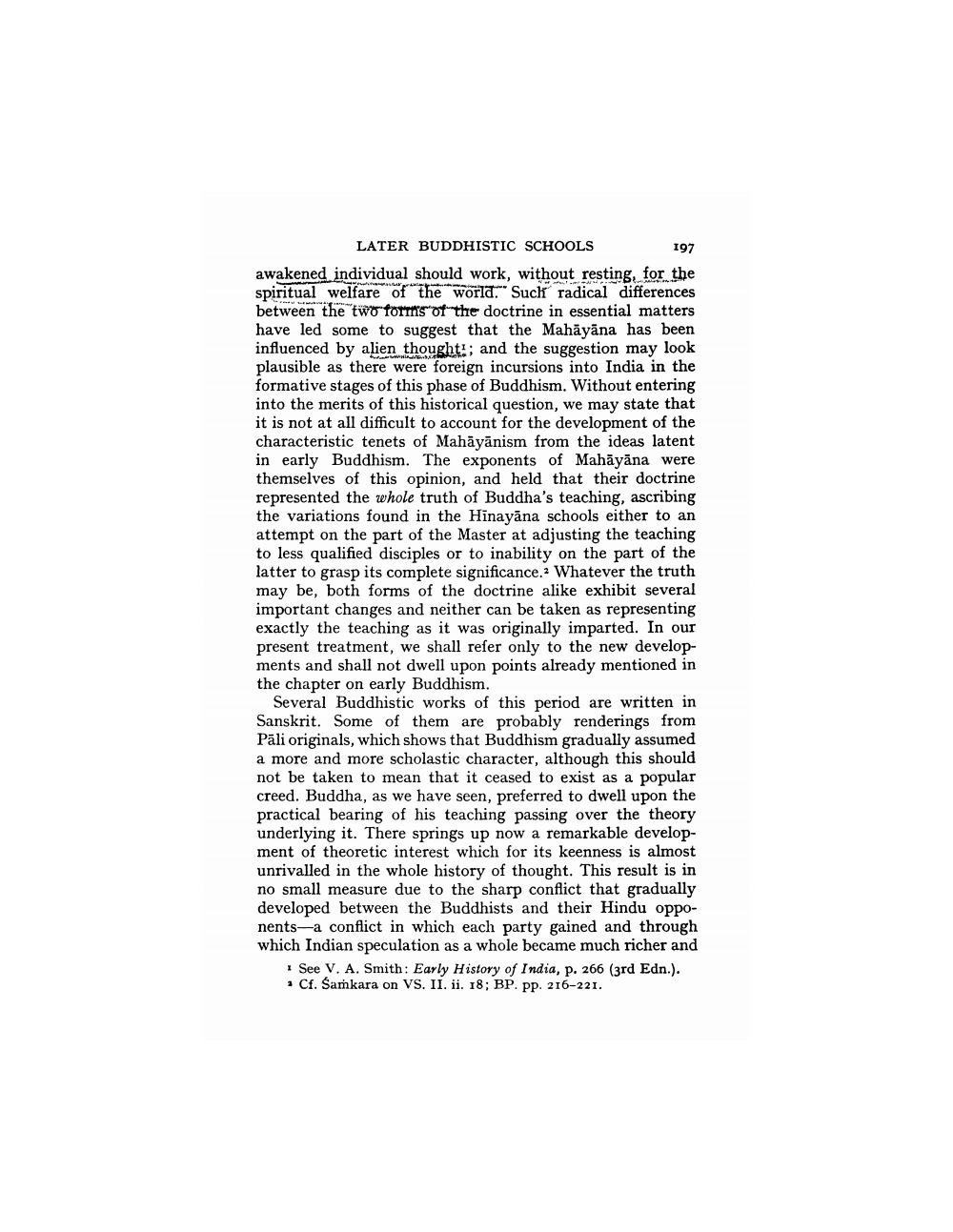________________
LATER BUDDHISTIC SCHOOLS
197 awakened individual should work, without resting for the spiritual welfare of the world. Suck radical differences between the two forms of the doctrine in essential matters have led some to suggest that the Mahāyāna has been influenced by alien thought!; and the suggestion may look plausible as there were foreign incursions into India in the formative stages of this phase of Buddhism. Without entering into the merits of this historical question, we may state that it is not at all difficult to account for the development of the characteristic tenets of Mahāyānism from the ideas latent in early Buddhism. The exponents of Mahāyāna were themselves of this opinion, and held that their doctrine represented the whole truth of Buddha's teaching, ascribing the variations found in the Hinayāna schools either to an attempt on the part of the Master at adjusting the teaching to less qualified disciples or to inability on the part of the latter to grasp its complete significance. Whatever the truth may be, both forms of the doctrine alike exhibit several important changes and neither can be taken as representing exactly the teaching as it was originally imparted. In our present treatment, we shall refer only to the new developments and shall not dwell upon points already mentioned in the chapter on early Buddhism.
Several Buddhistic works of this period are written in Sanskrit. Some of them are probably renderings from Pāli originals, which shows that Buddhism gradually assumed a more and more scholastic character, although this should not be taken to mean that it ceased to exist as a popular creed. Buddha, as we have seen, preferred to dwell upon the practical bearing of his teaching passing over the theory underlying it. There springs up now a remarkable development of theoretic interest which for its keenness is almost unrivalled in the whole history of thought. This result is in no small measure due to the sharp conflict that gradually developed between the Buddhists and their Hindu opponents-a conflict in which each party gained and through which Indian speculation as a whole became much richer and
See V. A. Smith: Early History of India, p. 266 (3rd Edn.). 1 Cf. Samkara on VS. II. ii. 18; BP. PP. 216-221.




